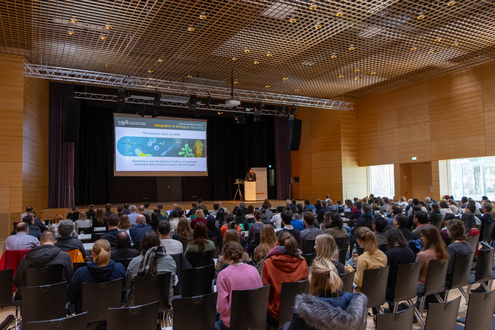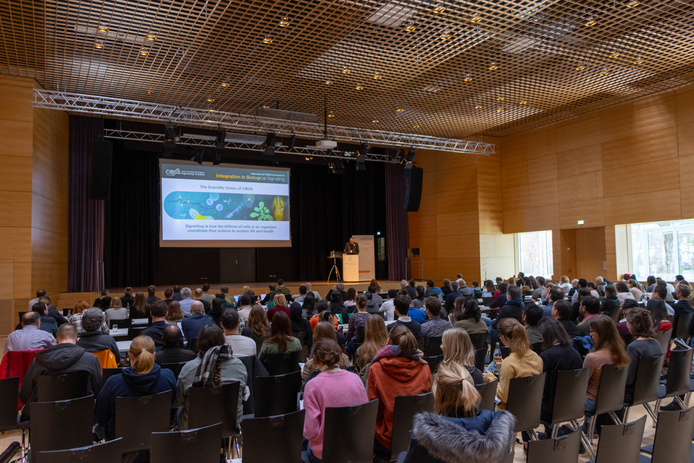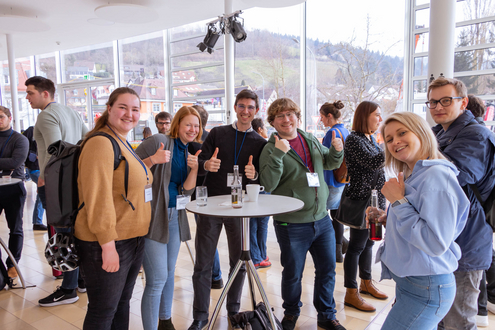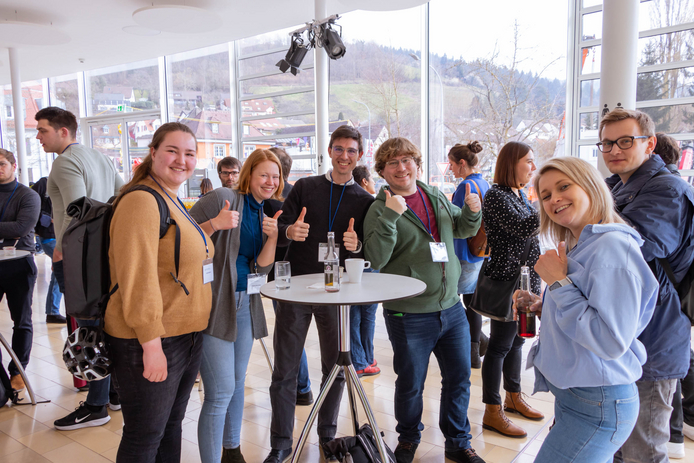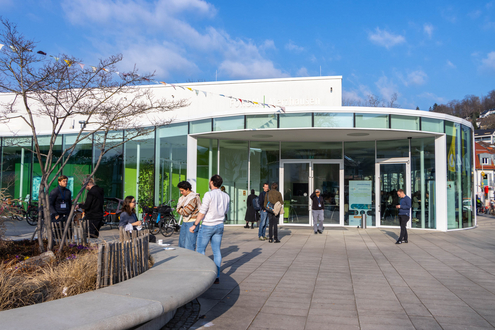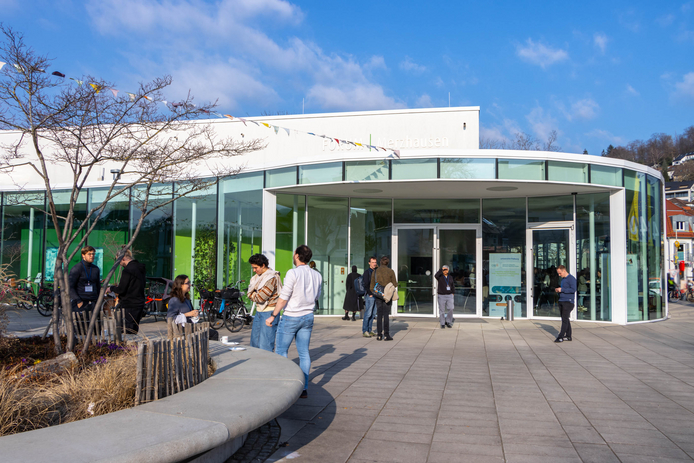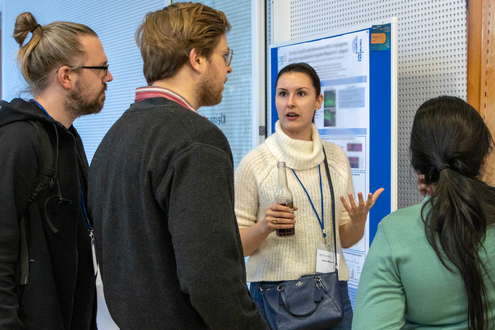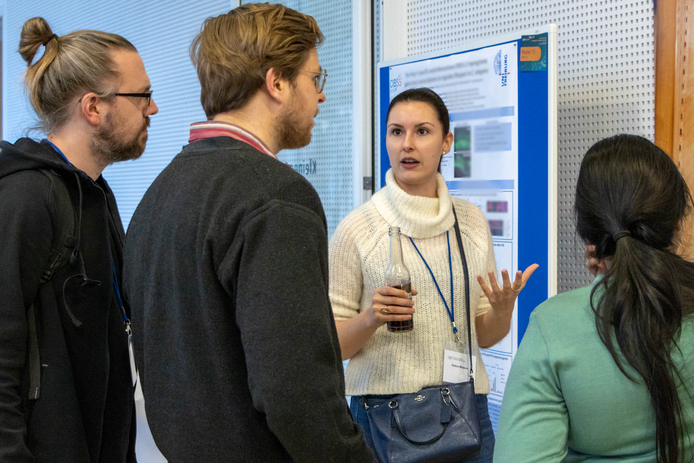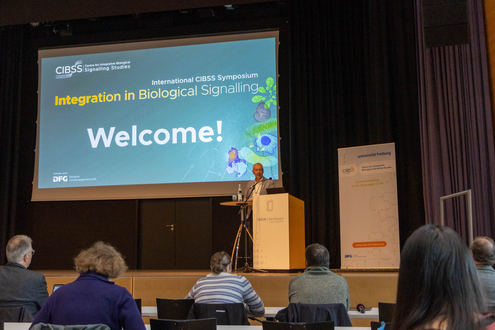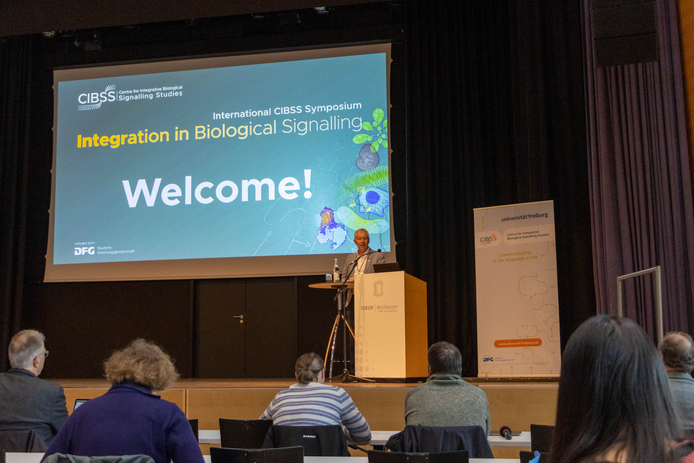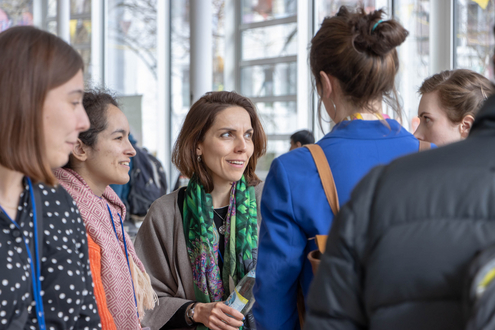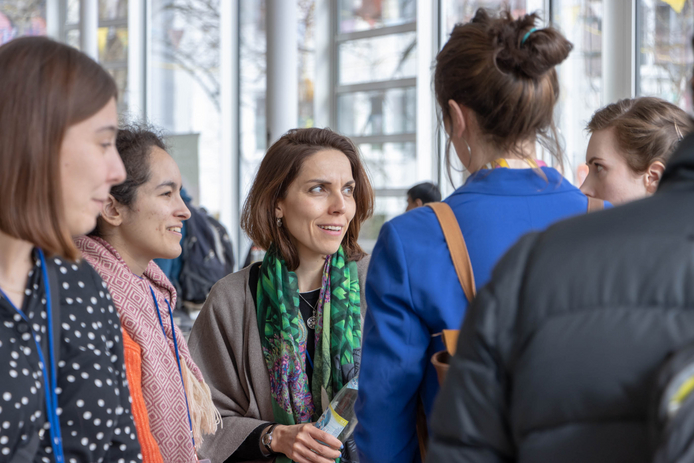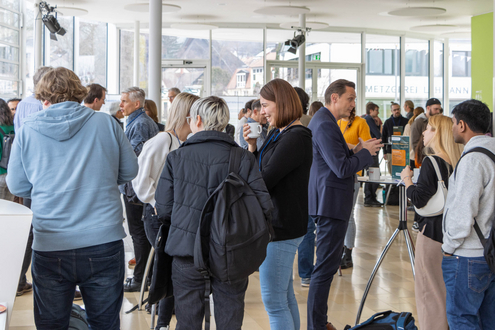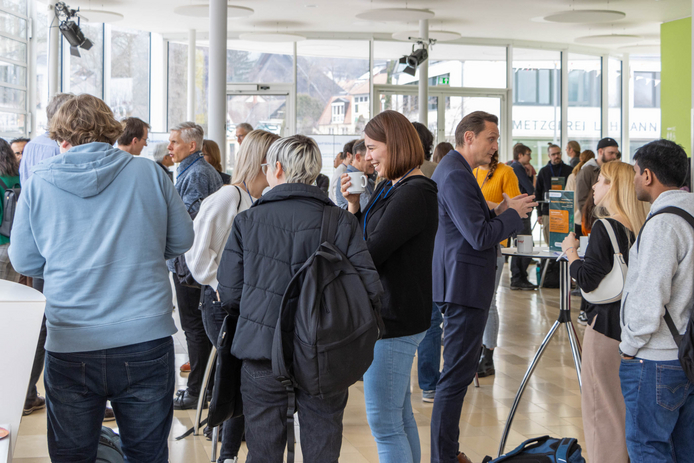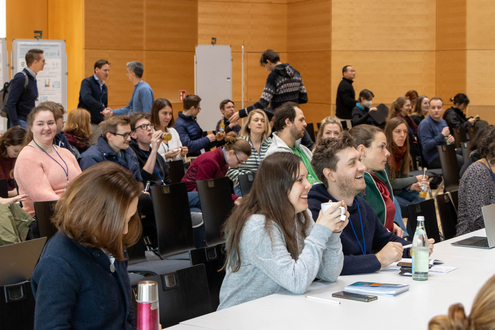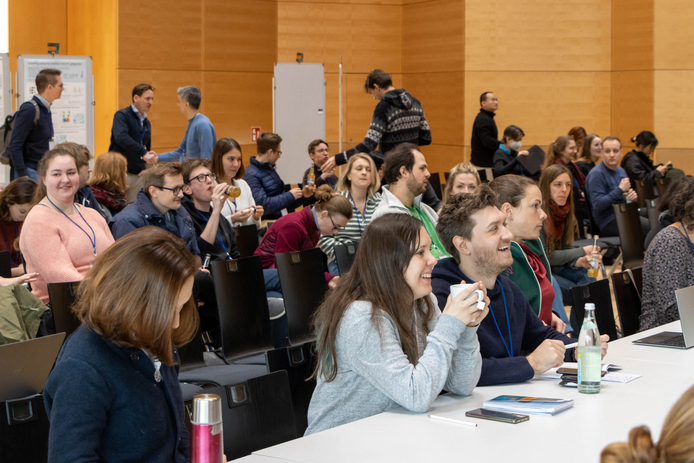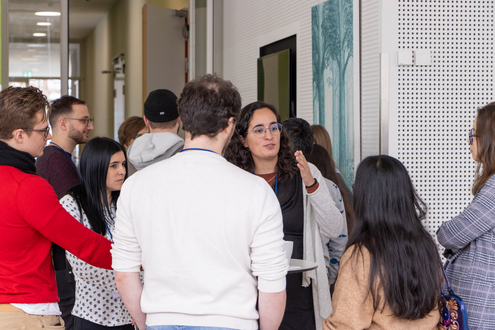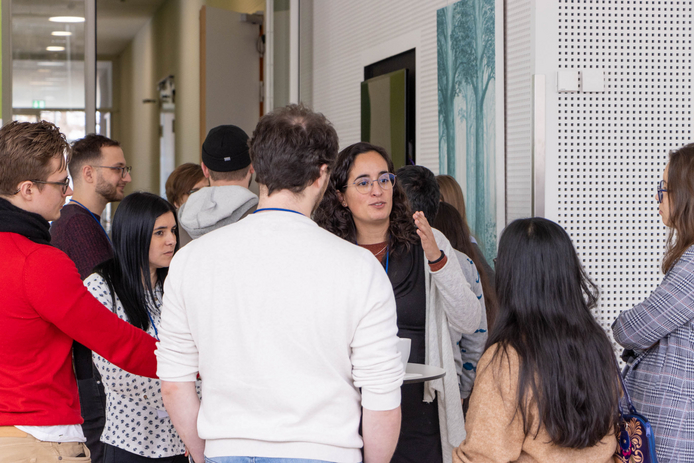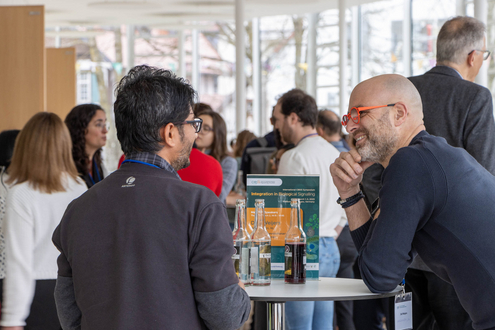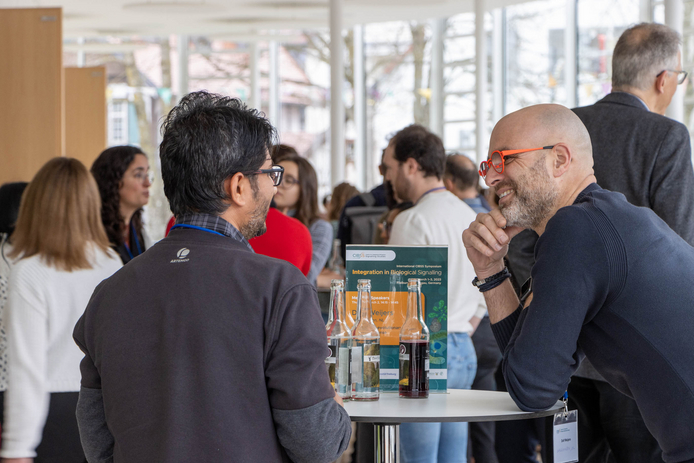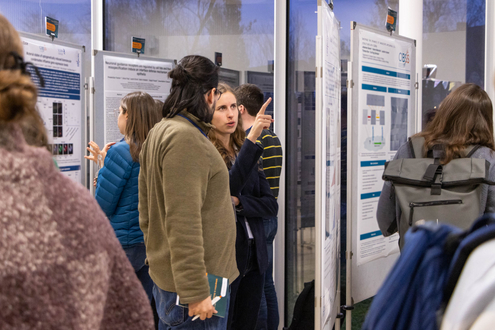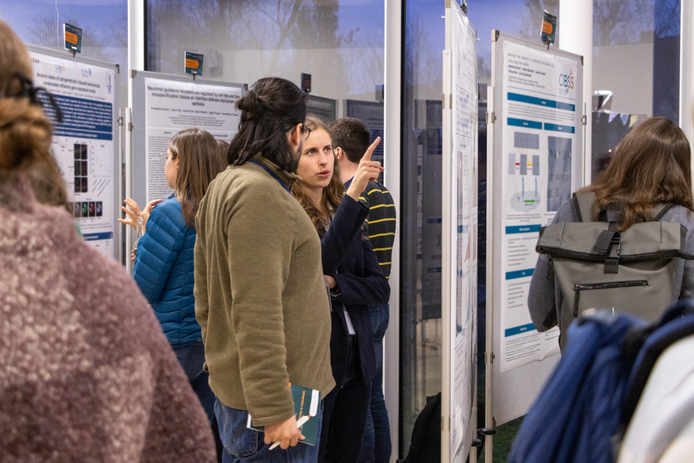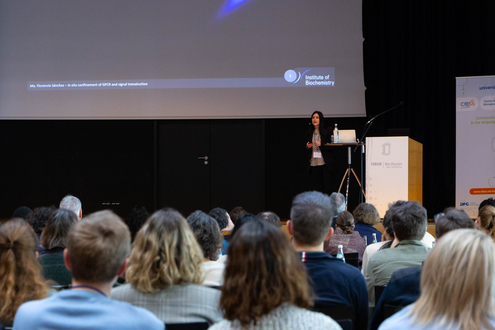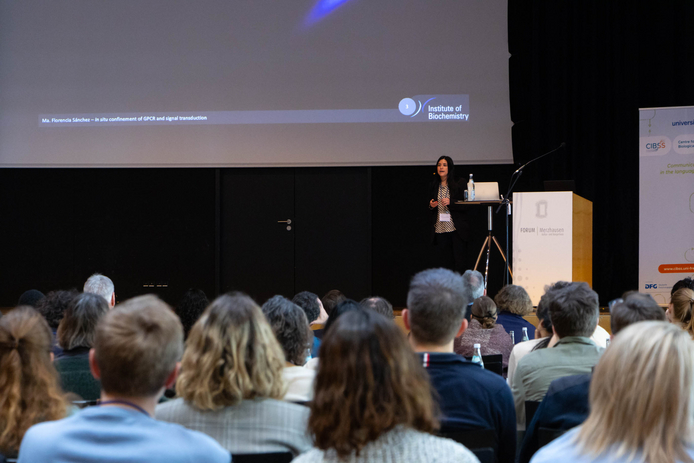Biological signals control developmental, metabolic and disease processes in all multicellular organisms. Understanding how cells and tissues perceive and compute these signals is relevant to all biological and biomedical research questions. The CIBSS symposium “Integration in Biological Signalling” therefore aimed to facilitate exchange between signalling scientists from different disciplines. The concept was a success: More than 200 scientists with research interests ranging from immune to structural to plant biology used the three-day symposium to present their current projects and network.


Across research subjects: CIBSS Symposium with an interdisciplinary approach
This year’s CIBSS Symposium “Integration in Biological Signalling” brought together more than 200 international signalling researchers in Freiburg
It is unusual for a scientific symposium to feature presentations by molecular biologists, plant scientists and clinical researchers within the same session. After all, most participants of such events are interested in exchanging ideas with colleagues who are working on similar questions to their own. However, complex topics such as signal integration – meaning the computation of biological signals by molecular and cellular processes – require interdisciplinary cooperation in order to comprehensively understand the underlying principles. The scientific organisers of the CIBSS symposium therefore wanted to set new impulses: They organised the programme of the symposium according to overarching concepts of signalling research instead of disciplines.
“It was an experiment – but in retrospect we are sure that we were right in our decision to focus on interdisciplinarity,” says Prof. Dr. Carola Hunte, a member of the CIBSS speaker team and of the symposium’s organising committee. She refers to the positive feedback from the participants after the event and the lively discussions in the breaks and during the poster session.
anonymous feedback of a participant
“(...) [There were] a lot of talks from plant biologists. It was interesting when they presented similar signalling mechanisms, which exist in animals.”
The poster sessions and the "Meet the Speakers" format offered early career researchers the opportunity for discussions with the international speakers and to present their own projects. After the first CIBSS Symposium 2020 had taken place virtually during the Corona pandemic, the organisers were particularly pleased about the lively and dynamic exchange on site: “Such events are incredibly valuable for making new contacts and developing ideas,” says Prof. Dr. Wolfgang Driever, who is also a member of the CIBSS speaker team and the symposium organising committee.
Symposium website and programme




